Treatment cost
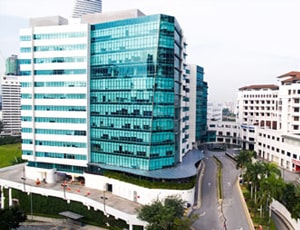
Parkway Pantai located in Kuala Lumpur, Malaysia is accredited by JCI. Also listed below are some of the most prominent infrastructural details:

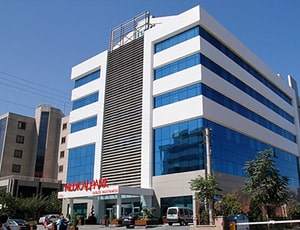
Types of Hand Microsurgery in Medical Park Gebze Hospital and its associated cost
| Treatment Option | Approximate Cost Range (USD) | Approximate Cost Range (TRY) |
|---|---|---|
| Hand Microsurgery | 2253 - 4548 | 67730 - 133883 |
DOCTORS IN 10 SPECIALITIES
FACILITIES & AMENITIES
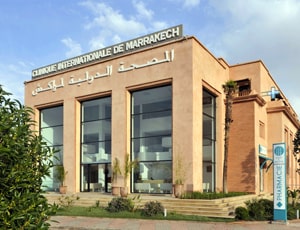
Apart from in-detail treatment procedures available, Clinique Internationale Marrakech located in Marrakesh, Morocco has a wide variety of facilities available for International Patients. Some of the facilities which are provided by them are Accommodation, Airport Transfer, Choice of Meals, SIM, TV inside room. Also listed below are some of the most prominent infrastructural details:
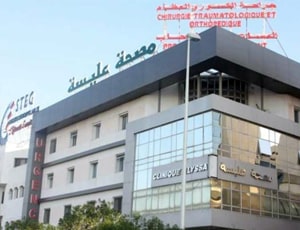
Apart from in-detail treatment procedures available, Clinic Alyssa located in Tunis, Tunisia has a wide variety of facilities available for International Patients. Some of the facilities which are provided by them are Accommodation, Airport Transfer, Interpreter, SIM, TV inside room. Also listed below are some of the most prominent infrastructural details:
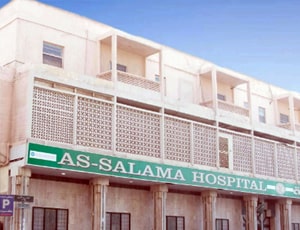
Apart from in-detail treatment procedures available, NMC As Salama Hospital located in Al Khobar, Saudi Arabia has a wide variety of facilities available for International Patients. Some of the facilities which are provided by them are Accommodation, Airport Transfer, Choice of Meals, Interpreter, SIM, TV inside room. Also listed below are some of the most prominent infrastructural details:
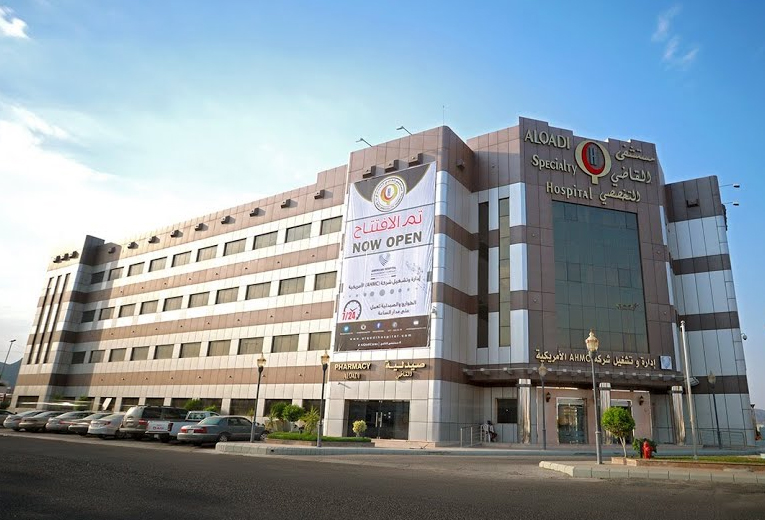
Apart from in-detail treatment procedures available, NMC Al Qadi Specialty Hospital located in Najran, Saudi Arabia has a wide variety of facilities available for International Patients. Some of the facilities which are provided by them are Accommodation, Airport Transfer, Choice of Meals, Interpreter, SIM, TV inside room. Also listed below are some of the most prominent infrastructural details:
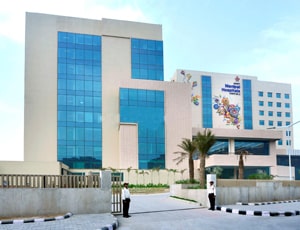
Types of Hand Microsurgery in Manipal Hospital, Dwarka and its associated cost
| Treatment Option | Approximate Cost Range (USD) | Approximate Cost Range (INR) |
|---|---|---|
| Hand Microsurgery | 3456 - 5563 | 284374 - 455998 |
DOCTORS IN 13 SPECIALITIES
FACILITIES & AMENITIES
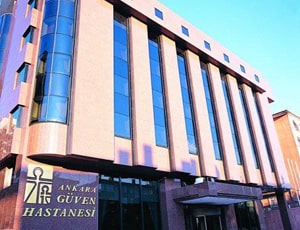
Types of Hand Microsurgery in Guven Hospital and its associated cost
| Treatment Option | Approximate Cost Range (USD) | Approximate Cost Range (TRY) |
|---|---|---|
| Hand Microsurgery | 2272 - 4524 | 69981 - 136126 |
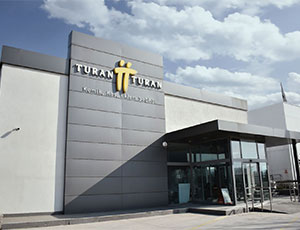
TURAN and TURAN is a private clinic founded in 1999 by Dr. Kayhan Turan and his wife Dr, Bethul Turan. It has been accredited by JCI, CEP, ANSI-CAP, and Smith and Nephew certifications. The clinic offers joint, bone, and muscle treatment in modern ways.
It is a 225 bedded facility with 20 ICU beds. The doctors have successfully performed 700 pediatric, 2,000 spine, 11,000 arthroplasty, and 20,000 sports orthopedic surgeries. The clinic aims to provide excellence in compassionate, personalized care that is choice-conscious, consistent, and quality-driven for all patients. The team of doctors provides a broad spectrum of professional expertise and experience and continually undertakes professional development education to be up to date with the latest in medical treatment approaches. The goal is to make all patients feel welcome while providing high-quality professional medical care in a comfortable environment.
Turan & Turan Bone Muscle Joint Health Center offers services in all areas of orthopedic issues and joint surgery, like knee, foot-ankle, hip, back, waist, elbow, and shoulder pain which are treated with effective and advanced procedures. In light of scientific improvements and developments, regenerative treatments such as bacteriophage treatment, platelet-rich plasma (PRP), and stem cell applications are pioneering applications with expert support and knowledge.
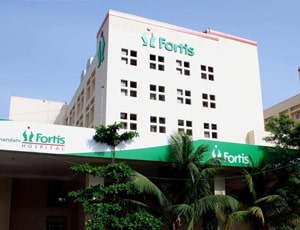
Types of Hand Microsurgery in Fortis Hiranandani Hospital and its associated cost
| Treatment Option | Approximate Cost Range (USD) | Approximate Cost Range (INR) |
|---|---|---|
| Hand Microsurgery | 3445 - 5605 | 284901 - 456893 |
DOCTORS IN 13 SPECIALITIES
FACILITIES & AMENITIES
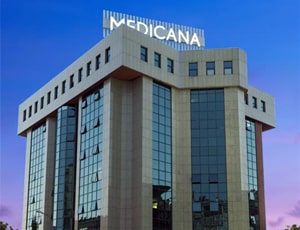
Types of Hand Microsurgery in Medicana Camlica Hospital and its associated cost
| Treatment Option | Approximate Cost Range (USD) | Approximate Cost Range (TRY) |
|---|---|---|
| Hand Microsurgery | 2328 - 4562 | 69180 - 133794 |
DOCTORS IN 14 SPECIALITIES
FACILITIES & AMENITIES

Thumbay University Hospital, Ajman located in Ajman, United Arab Emirates is accredited by JCI. Also listed below are some of the most prominent infrastructural details:
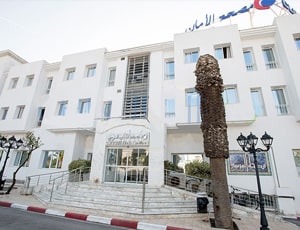
Apart from in-detail treatment procedures available, Chirurgie Pro located in La Marsa, Tunisia has a wide variety of facilities available for International Patients. Some of the facilities which are provided by them are Accommodation, Airport Transfer, Choice of Meals, Interpreter, SIM, TV inside room. Also listed below are some of the most prominent infrastructural details:
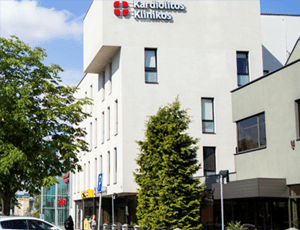
Apart from in-detail treatment procedures available, Kardiolita Hospital, Kaunas located in Kaunas, Lithuania has a wide variety of facilities available for International Patients. Some of the facilities which are provided by them are Accommodation, Airport Transfer, Choice of Meals. Also listed below are some of the most prominent infrastructural details:
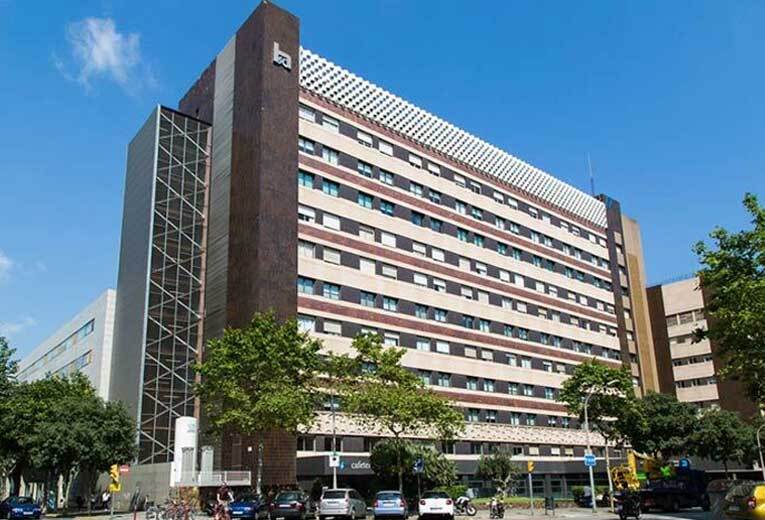
The Hospital is an amalgamation of a group of buildings located in the Eixample Left of Barcelona, ??between Paris, Viladomat, and London streets. It has a capacity of 350 adjustable beds and first-class hotel-like services inpatient rooms. Currently, it has a workforce of about 1100 Healthcare Professionals.
In order to treat patients with intensive care, the Hospital has 10 beds in its ICU for critically ill patients.
The Hospital has launched a few more things to improve customers’ services- 4 new Operating Rooms and a New Diagnostic Imaging Service.
Other Services
Types of Room
Double Rooms, Double Rooms for Individual Use, and Single Rooms; equipped with an easy-to-use electrical movement control system and a nursing call/warning system, located at the head of the bed, a sofa-bed for the companion, and a bathroom with a shower. They are also equipped with television and telephone.
A cafeteria/Restaurant is also available for the patients or visitors.
Microsurgery of the hand and wrist may be used to treat traumatic injuries such as a severed thumb or finger, severe laceration of a blood vessel, or a severe tendon or nerve injury. The surgery involves the use of specialized operation microscope and precision instrumentation. The procedure is commonly performed for nerve repair, reattachment of a severed finger, tendon repair etc. It is performed by an expert surgeon specializing in microsurgery or microvascular surgery. It is also used in the treatment of Carpal Tunnel Syndrome, Rheumatoid arthritis, Dupuytren's contracture.
The patient is given anaesthesia either local anaesthesia, intravenous sedation or general anaesthesia. Next, an incision is made based on the procedure. The most common procedures are described below:
Treating Trauma: The most common traumatic injury is tendon repair. Tendon repair retrieves the retracted tendon and reconnects it using surgical techniques to restore function and movement.
Carpal Tunnel Relief: This procedure is done to relieve the pressure on the median nerve in the carpal tunnel. An incision is made extending from the middle of the palm to the wrist. An alternate procedure is referred to as an endoscopic carpal tunnel release, with smaller incisions and the use of a surgical microscope or endoscope, a small flexible tube that contains a light and lens, to release pressure.
Treating Birth Deformities: This is usually done to treat syndicate a condition where two fingers fused together by a web of the skin or by the skin and a partial fusion of bones. Techniques such as skin grafting or a local flap procedure like Z-Plasty create flexibility at the incision site for growth and movement of the fingers. The incision is usually closed with resorbable sutures.
The recovery time for the procedure is minimal. The patient is advised to keep his/her arm elevated for the next 3-5 days. This ensures minimal swelling and pain. It is also essential to keep the wound dressings dry and clean. Physical movement in areas other than the procedure area is recommended to ensure that there is no stiffness. Physical therapy is usually prescribed to gain full function of the hand. Following all postoperative instructions including cleansing, taking prescribed medications and hand therapy exercises ensures a proper speedy recovery.
Ask your healthcare adviser for the best multiple options and choose the one that meets your expectations
The Hand Microsurgery package cost in Malaysia varies from one hospital to another and may offer different benefits. The Hand Microsurgery package cost usually includes all the expenses related to pre and post surgery expenses of the patient. The treatment cost usually includes the expenses related to hospitalization, surgery, nursing, medicines, and anesthesia. A prolonged hospital stay due to delayed recovery, new diagnosis and complications after surgery may increase the cost of Hand Microsurgery in Malaysia.
Hand Microsurgery in Malaysia is offered by multiple hospitals across the country. The following are some of the most renowned hospitals for Hand Microsurgery in Malaysia:
While the speed of recovery may vary from patient to patient, they are still required to stay for about 10 days after discharge. This duration of stay is recommended to complete all the necessary follow-ups and control tests to ensure that the surgery was successful.
Apart from the Hand Microsurgery cost, there are a few other daily charges that the patient may have to pay. These are the charges for daily meals and accommodation outside the hospital. These charges starts from USD 50 per person.
Some of the cpopular cities in Malaysia that offer Hand Microsurgery include the following:
The patient is supposed to stay at the hospital for about 1 days after Hand Microsurgery for monitoring and care. The patient is subjected to several biochemistry and radiological scans to see that everything is okay and the recovery is on track. After making sure that patient is clinically stable, discharge is planned.
There are more than 1 hospitals that offer Hand Microsurgery in Malaysia. The above mentioned clinics have the required infrastructure and a dedicated unit where patients can be treated. Additionally, these hospitals are known to comply with the international standards as well as local legal requirements for the treatment of patients.
Some of the renowned doctors for Hand Microsurgery in Malaysia are: